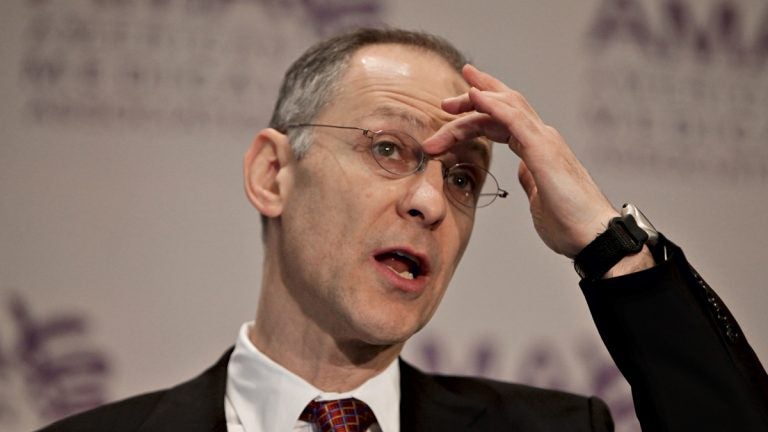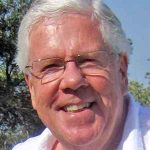Who in his right mind wants to die at 75?
He claims, though, that he won't actively end his life — he's always been opposed to euthanasia, and to "death with dignity" — he will not try to prolong it either.

Dr. Ezekiel J. Emanuel is shown speaking at the American Medical Association's annual conference in 2009. (AP Photo/J. Scott Applewhite, file)
Dr. Ezekiel Emanuel, chair of the University of Pennsylvania’s Department of Medical Ethics and Health Policy, wrote in The Atlantic a few years back that he hopes to die at 75.
Zeke, as he is widely known, is no stranger to controversial pronouncements. In fact, as one of the architects of the Affordable Care Act, he writes in the preface to his book “Reinventing American Healthcare” that Obamacare will “improve our terribly complex, blatantly unjust, outrageously expensive, grossly inefficient, error-prone system.”
Zeke is not one to equivocate.
He claims, though, that he won’t actively end his life — he’s always been opposed to euthanasia and to “death with dignity” — but he will not try to prolong it either. In fact, he says that after age 75, he won’t get any regular preventive tests, screenings, or interventions. No more colonoscopies, cardiac stress tests, pacemakers, heart valve replacement or bypass surgery. He’ll even avoid flu shots.
Americans, he believes, are obsessed with exercising, doing mental puzzles, consuming various juice and protein concoctions, sticking to strict diets, and popping vitamins and supplements, all in a valiant effort to cheat death and prolong life as long as possible. This has become so pervasive that it now defines a cultural type, what he calls the “American immortal.”
Zeke’s plan to shuffle off his mortal coil at 75 — or at least to tighten it — five years beyond the Bible’s prescribed life span, will surely help to cut back on the outrageously expensive aspect of U.S. healthcare, now accounting for $3.8 trillion a year and 18 percent of gross domestic product.
In a way, though, his plan is a little self-serving, a bit of showing off, of grandstanding, even of publicity seeking. Zeke has just reached the age of 60. He has run marathons and climbed mountains; he is trim and leads a healthy lifestyle.
But he would do well to keep in mind such luminaries as Isaac Newton, Alexander Graham Bell, and others who contributed mightily to this life in their 80s. Arthur Rubinstein performed one of his great recitals at Carnegie Hall when he was 89. And Nelson Mandela, when president of South Africa, married for the third time on his 80th birthday. California Democrat Dianne Feinstein, now 84, has just announced that she will run again for the U.S. Senate.
Aging isn’t just a biological process, it’s also very much a cultural one. My Shanghai-based Chinese daughter-in-law says that in that country, where pensions kick in at 60, the elderly are revered and aging is celebrated, even venerated. Placing your parents in retirement homes is considered uncaring and is done only as a last resort.
Consider that, even in Zeke’s lifetime, life expectancy has risen from 65 in the 1950s to 78 today — and there are now more than 72,000 centenarians in the U.S., according to the Centers for Disease Control and Prevention. Much of this can be attributed to his own profession with the advent of some of the procedures he would like to forgo.
Finally, there’s the issue of handing down knowledge to future generations. Zeke has a medical degree and an Oxford doctorate in philosophy. What an extraordinary wealth of wisdom and knowledge to bequeath to his grandchildren.
So, get real Zeke. Compared with the ancient Romans, who lived an average of 35 years, or even the Victorians who typically cashed in their chips around 50, as long as you have your marbles, you can get way beyond 75 — and benefit yourself as well as those around you.
WHYY is your source for fact-based, in-depth journalism and information. As a nonprofit organization, we rely on financial support from readers like you. Please give today.





